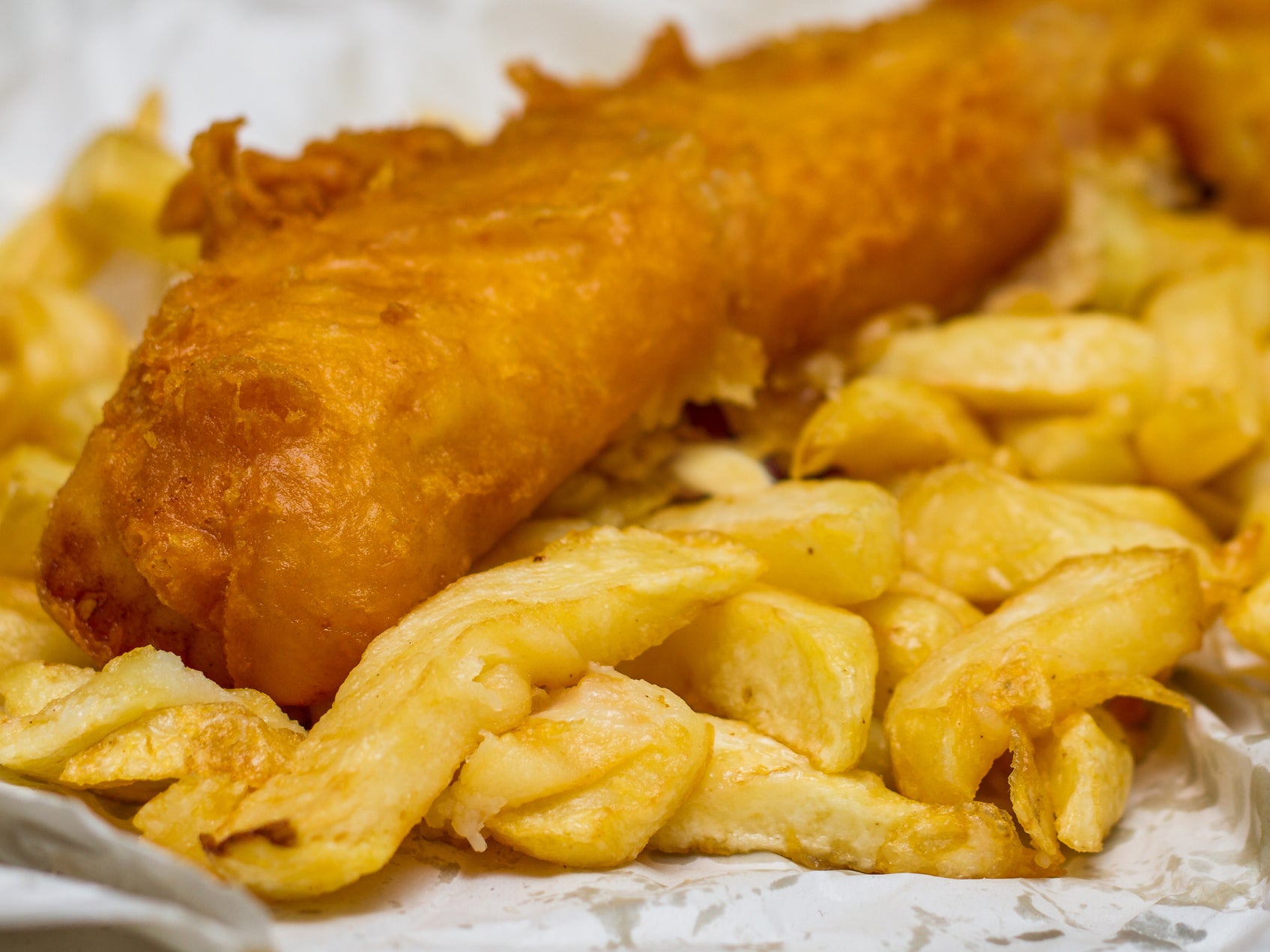Fish and chips under threat from climate change, study says
Larger sea creatures such as haddock and cod more vulnerable to rising sea temperatures

Britain’s traditional meal of fish and chips could disappear from the menu because of climate change, according to new research.
Scientists say larger marine species – including cod and haddock – face either being wiped out or shrinking in size as rising temperatures cause a reduction of oxygen in the oceans.
The findings, based on an analysis of crustaceans in the Antarctic, support the theory that bigger sea creatures are more vulnerable to climate change
Previous research has suggested some species could shrink up to a quarter by 2050.
Professor John Spicer, who co-authored the study and is a marine zoologist at the University of Plymouth, has spent more than 30 years examining the effect of climate change on ocean organisms.
Endangered sharks being served up in British fish and chip shops
Show all 6He said: “Over the last 50 years, the oxygen in our oceans has decreased by around two to five per cent and this is already having an effect on species’ ability to function.
“Unless they adapt, many larger marine invertebrates will either shrink in size or face extinction, which would have a profoundly negative impact on the ecosystems of which they are a part.
“This is obviously a major cause for concern.”
The study, published in the journal Philosophical Transactions of the Royal Society B, looked at four types of crustacean, known as amphipods, which are abundant off the coast of the western Antarctic peninsula.
It found that larger species suffered respiratory disadvantages when the levels of oxygen were reduced, compared to smaller animals.
The study also found evidence of “evolutionary innovation”, such as the development of pigments that boosts the oxygen-carrying capacity of the blood.
Professor Spicer said: ”Our research also shows some species have evolved mechanisms to compensate for reductions in oxygen, and so it is not always as simple as drawing a link between size and future survival.
“But it would be foolhardy to pin our hopes on such ‘evolutionary rescue’. Many large species will almost certainly be the first casualties of our warming, oxygen-poor ocean.”
Previous studies have found that climate change could lead to populations of cod being replaced by other species such as squid, sardines, mackerel and red mullet.
Rising ocean temperatures have already reduced global fish stocks by nearly 5 per cent, and up to 35 per cent in key fishing regions such as the North Sea.
Dr Simon Morley, an ecophysiologist with the British Antarctic Survey and a co-author of the study with Professor Spicer, said: “Marine animals thrive in the Southern Ocean but life in these freezing waters has led to the evolution of many distinct characteristics.
“These ‘strategies’, which allow animals to survive in the cold, are expected to make many Antarctic marine invertebrates and fish vulnerable to the impact of climate change.
“Understanding these impacts will not only help us to predict the fate of marine biodiversity at the poles but will also teach us much about the mechanisms that will determine the survival of species across the world’s oceans.”
SWNS
Subscribe to Independent Premium to bookmark this article
Want to bookmark your favourite articles and stories to read or reference later? Start your Independent Premium subscription today.

Join our commenting forum
Join thought-provoking conversations, follow other Independent readers and see their replies